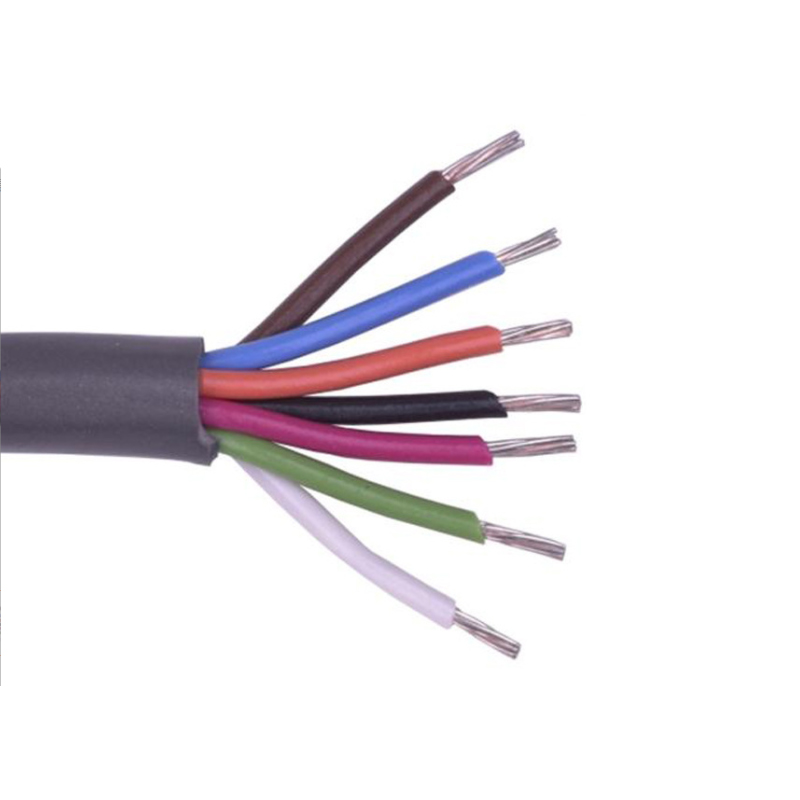Nylon is a versatile and commonly used material in the manufacturing of cable connectors, and its contribution to waterproofing is attributed to several key properties. Here's how nylon material contributes to the waterproofing of cable connectors:
Inherent Water-Resistant Properties:
Nylon itself is inherently water-resistant. It is a synthetic polymer that does not absorb water easily. This property makes nylon a suitable material for components of cable connectors that need to resist the intrusion of moisture and water.
Non-Corrosive Nature:
Nylon is non-corrosive, meaning it does not react with water to form rust or other corrosive byproducts. This non-corrosive nature ensures that the structural integrity of the cable connectors remains intact over time, even when exposed to environmental moisture.
Sealing and Gasket Applications:
Nylon can be molded or used in the form of seals, gaskets, and other components that provide a barrier against water. These components are strategically placed in cable connectors to create a tight seal and prevent water ingress. Nylon's moldability allows for the creation of custom shapes and forms that enhance waterproofing.
Durability and Longevity:
Nylon is known for its durability and resistance to wear and tear. When used in cable connectors, it contributes to the overall longevity of the connector assembly. A durable and robust material helps maintain the structural integrity of the connectors, preventing water from entering through weakened or damaged areas.
Chemical Resistance:
Nylon exhibits resistance to a variety of chemicals, which includes resistance to water. This chemical resistance ensures that the material does not degrade or weaken when exposed to moisture, contributing to the long-term waterproofing of cable connectors.
Tight Tolerance and Precision Engineering:
Nylon can be machined or molded with tight tolerances, allowing for precision engineering of components like threads, seals, and fittings. This precision contributes to the creation of water-tight seals within the cable connectors, minimizing the chances of water infiltration.
Hydrophobic Surface:
The surface of nylon tends to be hydrophobic, meaning it repels water. This characteristic helps prevent water from adhering to the surface of the cable connectors. The hydrophobic nature of nylon contributes to the shedding of water, further protecting the connectors from moisture.
Temperature Resistance:
Nylon maintains its properties across a wide temperature range. This temperature resistance ensures that cable connectors made from nylon remain effective in preventing water ingress under varying environmental conditions, including temperature fluctuations.
UV Resistance:
Some types of nylon are UV-resistant, providing protection against the degrading effects of ultraviolet (UV) radiation from the sun. UV resistance helps maintain the material's properties over time, contributing to the long-term waterproofing of cable connectors exposed to outdoor environments.
In summary, nylon contributes to the waterproofing of cable connectors through its inherent water-resistant properties, non-corrosive nature, sealing capabilities, durability, chemical resistance, tight tolerance engineering, hydrophobic surface, temperature resistance, and UV resistance. These properties collectively make nylon a suitable and effective material for cable connectors used in applications where protection against moisture is critical.
 Abroad:[email protected]
Domestic:[email protected]
Abroad:[email protected]
Domestic:[email protected]
 Abroad: +86-18157471290
Domestic: +86-18157471293
Abroad: +86-18157471290
Domestic: +86-18157471293
- Home
- Products
- Industrial connectors
- Waterproof housings
- Power distribution box sets
- ABS electrical accessories
- Cables
- Moulds
- Power Distribution Board/Box
- Extension Lead with Plug
- AS/NZS Waterproof Electrical Products
- C Series IEC/CEE Waterproof Electrical Products
- B Series IEC/CEE Waterproof Electrical Products
- Waterproof Window Cover
- Waterproof Plastic/Metal/Aluminum Box
- House Use Electrical Items
- About Us
- FAQ
- News
- Contact Us

